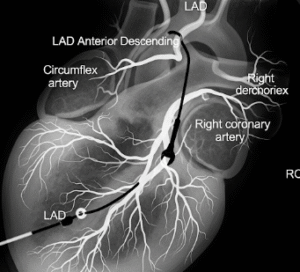Overview
High blood sugar, also known as hyperglycemia, is a condition where glucose levels in the blood are above normal. It is common in people with diabetes but can also occur temporarily due to stress, illness, or certain medications. In Korea, where diabetes prevalence has been rising due to lifestyle and dietary changes, high blood sugar management is a critical part of public health. Advanced hospitals and diabetes centers in Korea provide early diagnosis, education, and effective treatments.
What is High Blood Sugar?
High blood sugar occurs when the body does not produce enough insulin or cannot effectively use the insulin it produces. This leads to excessive glucose remaining in the bloodstream. In Korea, both Type 1 and Type 2 diabetes patients frequently face episodes of hyperglycemia, especially if their condition is not well controlled.
Symptoms
- Frequent urination
- Increased thirst
- Blurred vision
- Fatigue
- Headaches
- Difficulty concentrating
- Nausea or vomiting (in severe cases)
Causes
- Diabetes (Type 1 or Type 2)
- Insulin resistance
- Excessive carbohydrate or sugar intake
- Physical inactivity
- Illness, infection, or injury
- Stress
- Certain medications (e.g., steroids)
Risk Factors
- Family history of diabetes
- Overweight or obesity (common risk factor in Korea’s urban population)
- Sedentary lifestyle
- High-carbohydrate diet (including white rice, noodles, and sweets)
- Age over 40
- History of gestational diabetes in women
Complications
If left untreated, high blood sugar can lead to:
- Diabetic ketoacidosis (DKA) in Type 1 diabetes
- Hyperosmolar hyperglycemic state (HHS) in Type 2 diabetes
- Nerve damage (diabetic neuropathy)
- Kidney damage (diabetic nephropathy)
- Vision loss (diabetic retinopathy)
- Increased risk of cardiovascular diseases
Prevention
- Maintaining a balanced diet (Korean hospitals promote low-glycemic index versions of traditional foods like brown rice instead of white rice)
- Regular physical activity such as walking, cycling, or gym workouts
- Weight management through healthy eating and exercise programs
- Regular blood sugar monitoring
- Stress management
- Annual checkups (covered by Korea’s National Health Insurance Service)
Treatment Options in Korea
Korea offers world-class facilities for managing high blood sugar and diabetes:
- Diagnosis:
- Fasting blood sugar tests
- HbA1c testing (long-term blood sugar control)
- Oral glucose tolerance tests (OGTT)
- Available at hospitals such as Seoul National University Hospital and Samsung Medical Center.
- Medical treatment:
- Oral antidiabetic drugs (e.g., metformin, sulfonylureas, DPP-4 inhibitors)
- Insulin therapy (advanced insulin pumps are increasingly available in Korea)
- Newer medications like GLP-1 receptor agonists and SGLT2 inhibitors are used in specialized diabetes centers.
- Lifestyle and diet programs:
- Hospitals provide dietary counseling tailored to Korean cuisine, helping patients reduce sugar and carbohydrate intake.
- Structured exercise programs for weight control and improved insulin sensitivity.
- Advanced care:
- Diabetes centers in Asan Medical Center and Yonsei Severance Hospital specialize in complex cases with complications.
- Telemedicine and smartphone glucose monitoring apps are integrated into daily management, making Korea a leader in digital diabetes care.
Korea’s comprehensive diabetes management system ensures that patients with high blood sugar receive not just treatment but also education and lifestyle support to maintain long-term health.













